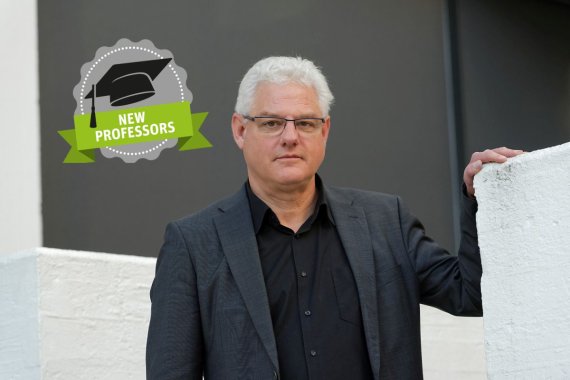Jan van Tatenhove. Photo: Guy Ackermans
But how do you form a joint policy if everybody wants something different and nobody has the final word? This question is the central theme in the work of the new professor Marine governance.
The logic dictates that when developing marine environmental policies you should follow the borders of the marine ecosystems. Van Tatenhove explains, who has been dealing with the sea for the chair group Environmental Policy since 2005. ‘Take the Dogger Bank. That is a shallow area in the North Sea in the British, Danish, German and Dutch territorial waters and where there is a lot of life. For such an ecosystem you would have to make agreements which everyone complies to. But that is difficult. England wants to build windmills for example, othercountries want to fish.’
Wat makes this case even more complicated, is that it is not enough if all countries agree, says Van Tatenhove. ‘European seas have various levels of government. The individual countries, the EU and the UN, but also the regional sea conventions such as the OSPAR convention for the North East Atlantic.’ It is often not clear who or what in this tangle of institutions has the final word. ‘We call it multilevel governance: making decisions and policies without a clear hierarchy in authority structure.’
North Pole
The research of Van Tatenhove and his PhD candidates is partially fundamental in nature. “With our publications we wanted to contribute to theory development for example about governance, legitimacy and accountability.’ But it is not just paper wisdom alone; also tasks for applied research are making their way to the group on the second floor of Leeuwenborch. For example, PhD candidates of Van Tatenhove together with among others, dredgers and other universities, researched how you can, under the title building with nature, design ‘eco-dynamic’ ports.
Another large applied research that Van Tatenhove supervised, focused on the Arctic Ocean, eminently an area where nobody – or everybody – is the boss. ‘You have the Arctic Council with eight member states and six interest groups of indigenous people. Furthermore, there are a few major players that want to do something on the pole. But also large NGO’s such as Greenpeace contribute significantly. Especially in such a fragmented authority structure they often play an important role.
In this setting the Wageningen PhDer is researching the ‘social license to operate’ of the oil industry in Greenland. A postdoc researcher is studying the phenomenon of benefit sharing, where multinationals that drill for oil or gas in the polar regions, compensate the indigenous people with money or facilities such as schools and roads. Van Tatenhove: ‘is that desirable and is it fair? That is what we are currently studying.’

